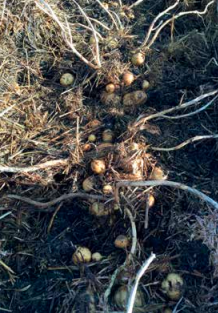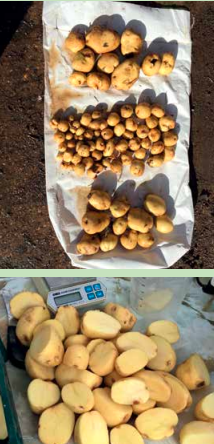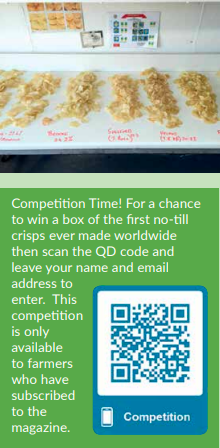Just like growing cereals most people assume you need to do some form of cultivation to establish a cereal crop, or physically plant tubers into a loose soil to produce a viable potato crop? The Groundswell potato trial set out to showcase an alternative technique. The resulting crisps produced from the 2018 potato harvest are proof that cultivations are unnecessary.
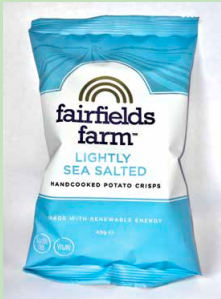
However, for this technique to be successful it involves a “systems approach” to growing that begins the year prior to any potatoes being grown. It’s very important to remember permeant soil cover is a cornerstone of Conservation Agriculture and sustainable soil management. This cover can be achieved either with something physically growing in the soil or by utilising the previous cash crops residue. The trial began in autumn 2017 with a high biomass cover crop direct drilled into preceding cereal crop stubble. The aim being to capture any soluble nutrients left over from the previous cash crop and biologically cycle the inherent fertility of the trial site. An application (25tons ha) of cold composted FYM was then applied to the living cover in the Spring and prior to planting of the Endeavour seed potatoes. In this trial no further nutrition was applied or an application of glyphosate used to terminate the over wintered cover.
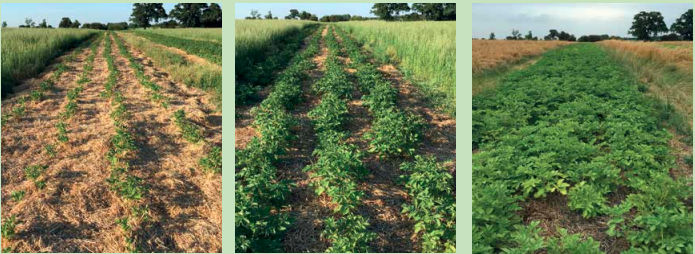
The seed potatoes are placed on not in the soil. Then a heavy mulch 25cm (10”) of loose wheat straw applied to cover the tubers. On this occasion no further herbicides or fungicides were then applied during the trial. There is the potential to use a mycorrhizal inoculate applied close to the tuber at planting which may improve nutrient availability to the establishing crop and this could be a particular advantage for a no-till establishment system. Work in conjunction with the Kent based company Plantworks is ongoing in this area. In order to harvest the tubers easily 6-meter beds were created and tramlines left to allow easy access for machinery. No irrigation was used on this crop apart from a light application of water to dampen the straw preventing it being blown away by wind. One reason not to irrigate was in order to demonstrate how the straw mulch will not only supresses weeds but retain the inherent moisture of the soil at planting some of which would normally be lost in a more conventional system.
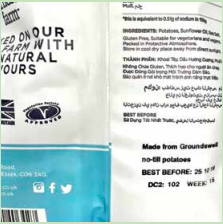
By covering the soil it further prevents evaporation caused by the wind or sun. Hand harvesting of the crop was required in the autumn of 2018, however the next step in this trial is to investigate how to fully mechanise the technique as well as to evaluate the Be one of the first to try the first truly no-till crisps exclusively at this year’s Groundswell Conference in Hertfordshire being held on the 26th and 27th June.
